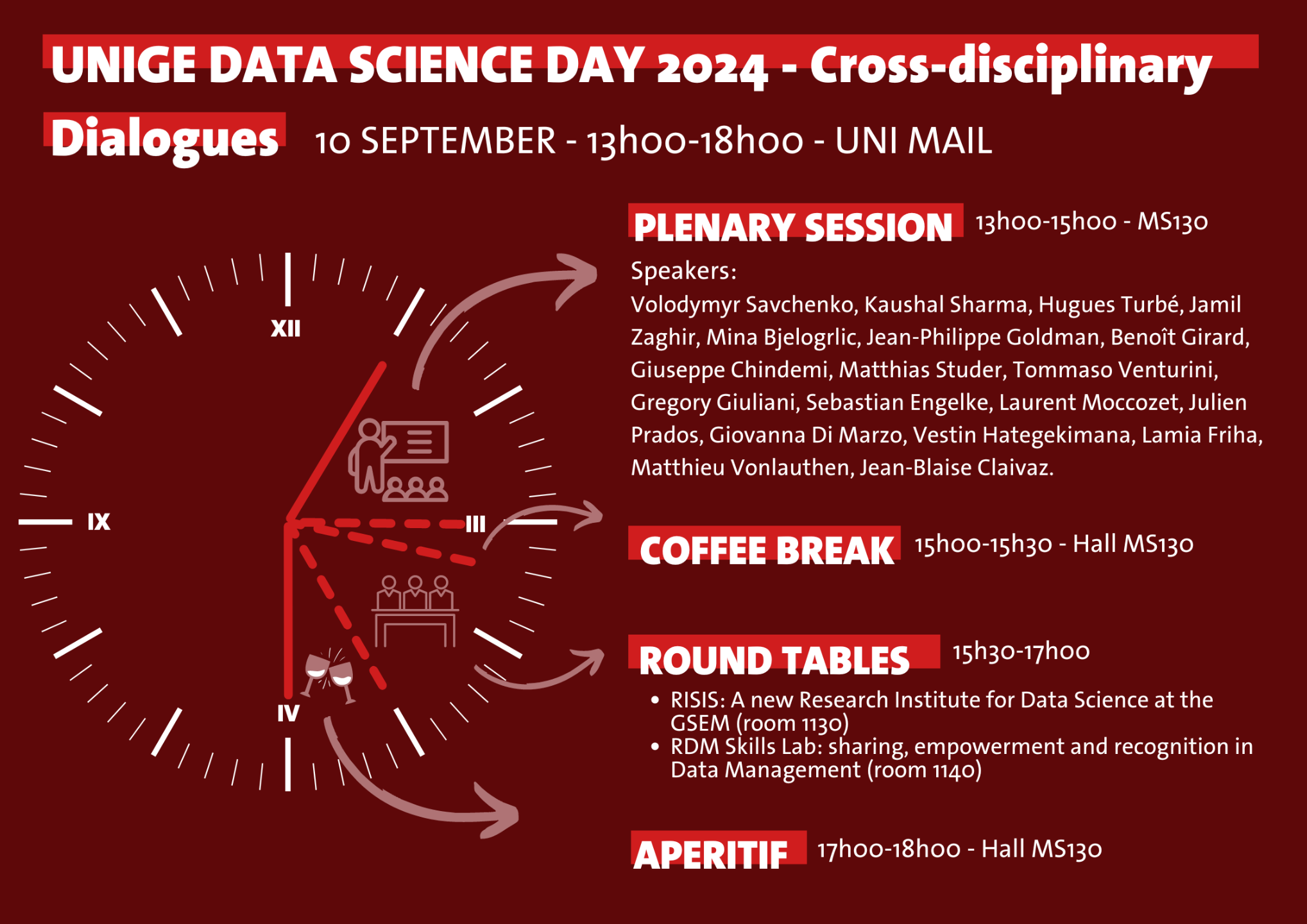- Volodymyr Savchenko, Faculty of Sciences, "Web-based platforms enabling Open Research Data across disciplines"
- Kaushal Sharma, Faculty of Sciences, "Annotations of perceived arousal from speech and heartrate: impact on multimodal emotion recognition performance"
- Hugues Turbé, Faculty of Medicine, "Research on self-explainable AI models in image classification".
- Jamil Zaghir, Faculty of Medicine, "FRASIMED: efficient dataset creation through crosslingual annotation projection".
- Mina Bjelogrlic, Faculty of Medicine, "HERO: towards large scale discoveries of protection factors in Health".
- Jean-Philippe Goldman, Faculty of Medicine, "DocuFlow a NLP pipeline in clinical context".
- Benoît Girard and Giuseppe Chindemi, Faculty of Medicine, "Analysis of free social interaction from eye to ai".
- Matthias Studer, Faculty of Social Sciences, "Studying Social Inequalities During the Covid Crisis using Administrative Data and Innovative Longitudinal Methods: Interdisciplinarity Challenges and Prospects".
- Tommaso Venturini, Faculty of Social Sciences, "Large-scale fieldwork: discourse analysis of the 1st Climate Global Stocktake".
- Gregory Giuliani, Institute for Environmental Sciences, "Mapping Land Cover Change: A Crossroad between Environmental, Computer, and Geospatial Science".
- Sebastian Engelke, Geneva School of Economics and Management, "Machine Learning for Climate Extremes".
- Laurent Moccozet, Institute of Information Sciences, "RCnum: an online semantic and multilingual edition of the Registers of the Geneva Council during the time of Calvin".
- Julien Prados, Faculty of Medicine, "Are Data-Science Platforms a good model for collaborative excellence ?".
- Giovanna Di Marzo, Faculty of Social Sciences, "Interdisciplinarity through Two 4EU+ Initiatives".
- Vestin Hategekimana, Faculty of Social Sciences, "WeData a step in unige’s data science community".
- Lamia Friha, DiSTIC, "Fostering Scientific Discovery Through Linked Data".
- Mathieu Vonlanthen, DiSTIC, "Hedera a Linked Data Platform for Research Data".
- Jean-Blaise Claivaz, DIS, "Byte-Sized Help On-the-Go for Research Data & Open Science".

